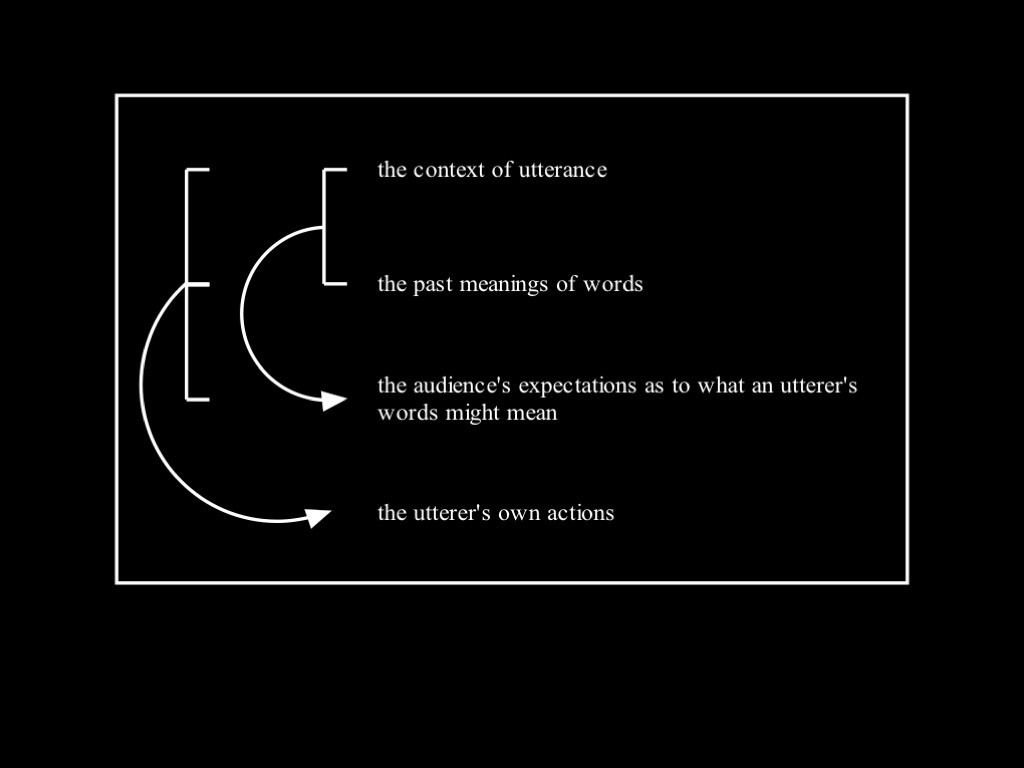Click here and press the right key for the next slide (or swipe left)
also ...
Press the left key to go backwards (or swipe right)
Press n to toggle whether notes are shown (or add '?notes' to the url before the #)
Press m or double tap to slide thumbnails (menu)
Press ? at any time to show the keyboard shortcuts
Lexical Innovation
Suppose there are two people and a word and that when communicating by language the second person once uses the word with the same meaning the first person once used it with, and that the sameness of meaning is non-accidental.
Is the existence of such a pair of people and a word necessary for there to be linguistic communication?
“It is a convention of English that ‘red’ in its most basic, literal sense, is correctly predicated only of things which are red. Speakers of English who are credited with an understanding of ‘red’ in its most basic and literal sense are thereby credited, inter alia, with the intention to uphold this pattern of predication as a matter of convention”
Wright, 1986 p. 220
“The role of symbols in language is evident: the meaning of a word or phrase is fixed (at least in part) by the conventions or rules that govern its use”
Hookway, 2000 p. 98
“A language is a set of historically evolved social conventions by means of which intentional agents attempt to manipulate one an¬other’s attention”
Tomasello 2001, p. 1120
1. Can a woman marry her daughter’s boyfriend?
2. Can a man marry his sister’s mother?
3. Can a man marry his widow’s sister?
“N. N. is in negotiations with the hostages [meaning captors]” (BBC Radio 4, News at 5pm, 12/11/03).
“When an aircraft crashes, where should the survivors be buried?” (Sanford 2002: 193)
lexical innovation
... often depends on facts about how words have been used in the past
... can result in meanings that persist.
Nouning] “you will you be ... my total big disorientator” (Karl Hyde, “Mmm Skyscraper I Love You”).
Malaprop] “Charles was wearing an old-fashioned mourning suit with a silk caveat around his neck and a monocycle in one eye.”
Joyce] “The Gracehoper was always jigging ajog, hoppy on akkant of his joyicity” (Finnegans Wake 408.22).
Malaprop and other forms of lexical innovation are “in the nature of things, atypical cases: if taken as a prototype for linguistic communication, they prompt the formulation of an incoherent theory”
Dummett, 1986 p. 472

1. Conventions are at most indirectly relevant to determining what utterances mean (the PE).
2. Any successful use of a word can establish expectations as to future meanings.
3. Successful communication involves creating and violating expectations no less than it involves conforming to them.